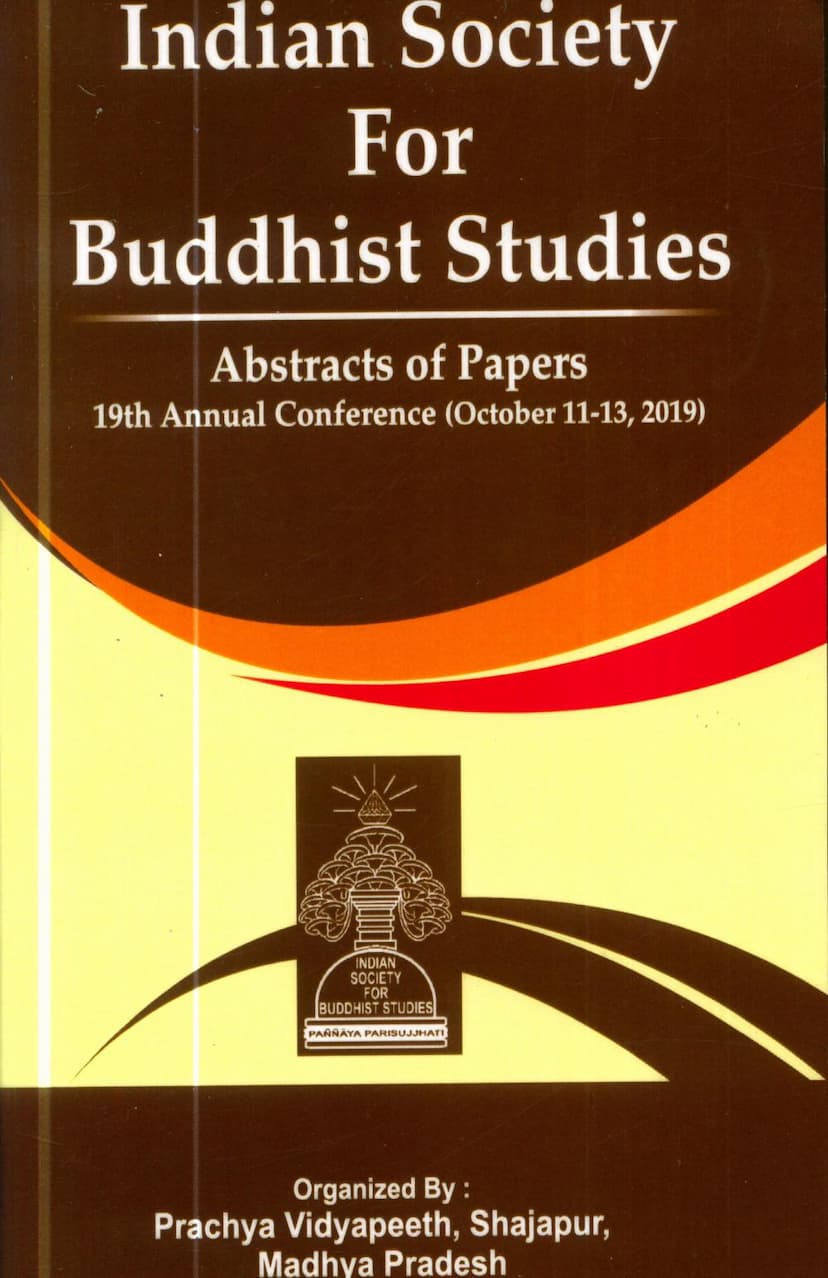Indian Society For Buddhist Studies
Added to library: September 1, 2025

Summary
This document is the abstracts of papers presented at the 19th Annual Conference of the Indian Society for Buddhist Studies, held from October 11-13, 2019, organized by Prachya Vidyapeeth, Shajapur, Madhya Pradesh.
The conference brought together scholars and researchers to deliberate on various aspects of Buddhist studies, encompassing its multidisciplinary nature including history, culture, art, philosophy, theology, ritual studies, and comparative religious studies. The abstracts cover a wide range of topics related to Buddhism, from its ancient literature and doctrines to its modern applications and relevance.
Key themes and topics discussed in the abstracts include:
- The Role of Women: Papers explore the status of women in Buddhism, including female ordination and their portrayal in Buddhist texts like the Jatakas.
- Historical and Cultural Aspects: Several papers delve into the history and spread of Buddhism in different regions of India (e.g., Tamil Nadu, Himalayan regions, Bengal) and its influence on art, architecture (e.g., Pagodas), and social life during various historical periods (e.g., Kalchuri period).
- Philosophical and Doctrinal Discussions: Topics like the doctrine of Kammavāda, the concept of mindfulness, the significance of meditation, the role of consciousness, and the philosophical critiques of Nagarjuna are discussed.
- Comparative Studies: Comparisons are made between Buddhism and other Indian traditions like Hinduism and Jainism, examining shared concepts such as the importance of asceticism, the Five Precepts versus the Pancha Mahavratas, and the caste system.
- Language and Literature: The importance of Pali and Prakrit languages, their similarities and differences, and the development of Pali commentaries are explored.
- Modern Relevance of Buddhism: Papers address how Buddhist philosophy can provide solutions to contemporary issues like mental health problems, conflict resolution, environmental degradation, and the crisis of human values.
- Key Figures and Texts: Contributions of prominent figures like Anagarika Dharmapala and Bhikshu Jagdish Kashyap, and the significance of texts like the Dhammapada, Jataka stories, and Milindapañha are highlighted.
- Buddhism in Other Cultures: The influence of Buddhism on Chinese society and its revival in Mongolia are also examined.
The document also includes messages from the Secretary of the Indian Society for Buddhist Studies, Dr. Lalit Gupta, and the Vice Chancellor of Nava Nalanda Mahavihara, Prof. Baidyanath Labh, who both emphasize the importance of the society in fostering Buddhist studies and the multidisciplinary nature of the conference. Professor Arvind P. Jamkhedkar also contributes a message, highlighting the unique position of Indian religious traditions. A message from Prof. Sagarmal Jain further emphasizes the comparative study of Jainism and Buddhism, particularly in relation to the Pali and Prakrit languages.
In essence, the collection of abstracts showcases the vibrant and diverse research being conducted in Buddhist Studies in India, highlighting both the historical depth and the contemporary relevance of Buddhist philosophy and practice.